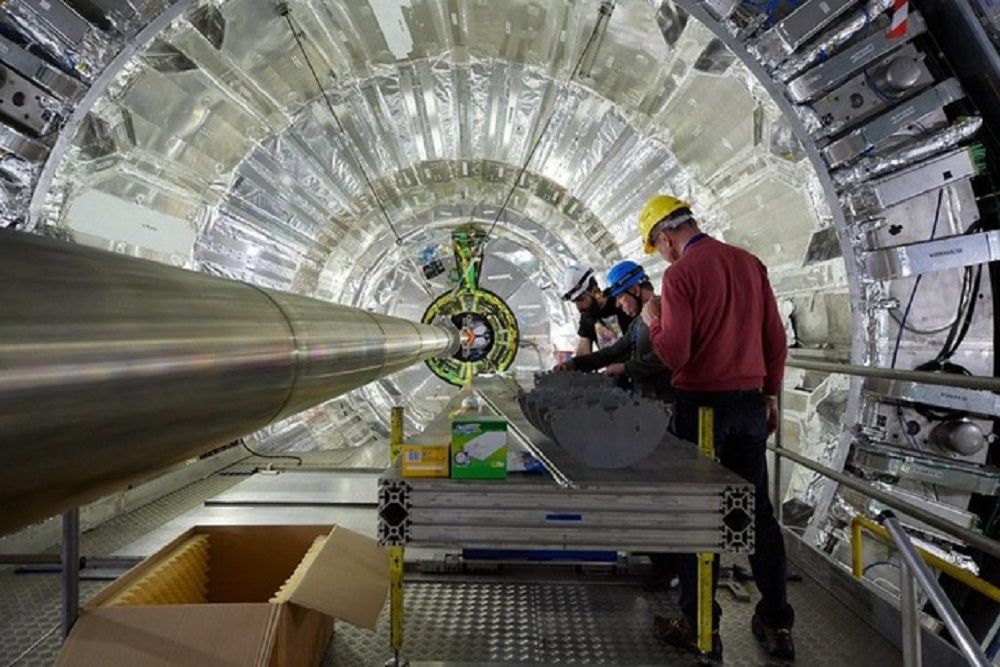The head of the Federal Department of Economic Affairs, Education and Research EAER, Guy Parmelin, has announced the launch of six new National Centres of Competence in Research (NCCRs) in Switzerland.
According to him, Switzerland will be investing $102 million (CHF100 million) in the six new research centres, each focusing on cutting-edge areas of scientific innovation.
Switzerland is spending CHF100 million ($102 million) on six new research centres, each focusing on cutting-edge areas of scientific innovation.https://t.co/yYVfrTkFBP
— swissinfo.ch (@swissinfo_en) December 16, 2019
The NCCRs are aimed at boosting Switzerland research and innovation long term in major fields such as automation, antibiotics resistance and quantum technology.
He added that the funding is meant to see through the first phase of the operation from 2020 to 2023, stating further funding will be provided by higher education institutions and the private sector.
The new addition will increase the number of Swiss scientific research institutes to 22 by 2020.
Parmelin also stated the NCCRs are designed to have a maximum shelf life of 12 years and will be set up at separate universities around Switzerland. Their focus will be spread among several topics, such as combating antibiotic-resistant bacteria, researching the evolution of language, and developing CO2-neutral solutions for the chemicals industry.
Switzerland’s NCCRs projects
The first NCCR was set up in 2001, and it was federal funded research with a particular focus on interdisciplinary approaches, but also on ground-breaking innovative topics in individual disciplines.
The State Secretariat selected the projects for Education, Research and Innovation, which together with the Swiss National Science Foundation (SNSF) evaluated more than 50 proposals.
The progress and implementation of the established institute are monitored by the Swiss National Science Foundation who also reviews the development of individual NCCRs with the assistance of experts from abroad.
The newly established National Centres of Competence in Research are:
- AntiResist: Research into and development of new approaches to combat antibiotic-resistant bacteria.
Professor Christoph Dehio, University of Basel
Federal funding 2020-2023: CHF 17m - Dependable Ubiquitous Automation: Improving the reliability and flexibility of intelligent systems, for example in the fields of energy management, mobility and industrial manufacturing
Professor John Lygeros and Prof. Gabriela Hug ETH Zurich
Federal funding 2020-2023: CHF 15.7m - Evolving Language: Researching the evolution of language. Application of results in, e.g. medicine and literature recognition (artificial intelligence). Professor Balthasar Bickel, University of Zurich, and Prof. Anne-Lise Giraud, University of Geneva
Federal funding 2020-2023: CHF 17m - Microbiomes: Researching the interaction of microorganisms and their impact in different systems (humans, animals, plants and the environment) – application potential in medicine, environment and nutrition.
Professor Jan Roelof van der Meer, University of Lausanne, and Prof. Julia Vorholt, ETH Zurich
Federal funding 2020-2023: CHF 16.1m - SPIN: Developing small silicon-based, rapid and scalable qubits as the basis for new information-processing technology.
Professor Richard Warburton, University of Basel
Federal funding 2020-2023: CHF 17m - Suchcat: Developing the bases on which chemical processes and products, and the chemical industry as a whole, can be shaped in a more sustainable, resource-efficient and CO2-neutral way (sustainable chemistry).
Professor Javier Pérez-Ramírez, ETH Zurich, and Prof. Jérôme Waser, EPF Lausanne
Federal funding 2020-2023: CHF 17m
Switzerland International cooperation
The Swiss government has also said international research cooperation is also high on its agenda. Switzerland currently holds leading positions in several global rankings in research and innovation, in terms of academic publications concerning population size or terms of patent applications.







